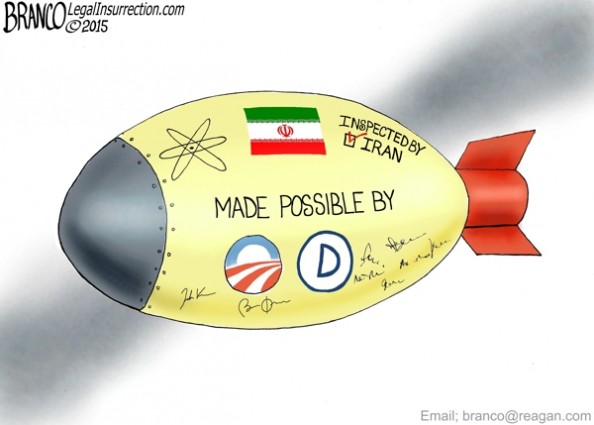So What?
Oops: Turns out the Iran deal breaks the law
I’ll bet you could hear the guffaws in the White House over this one all the way out to Arlington.
The reaction by the president to this “revelation” must have been similar to the now famous utterance of another US “statesperson”: “What difference at this point does it make?”
This story barely survived one news cycle and even then was met with nothing more than yawns by “leading media figures”, far as we can tell.
In the extraordinarily unlikely event that there were enough members of Congress who have any sense of obligation to actually carry out their moral responsibility to ensure the national security and the integrity of the legal and legislative systems of the United States, what do you suppose our dear president would do?
Why he’d threaten to “shut down the government” over such an attempt to deny his all-encompassing authority to do whatever the hell he wants to do.
And the media? They’d deplore such a catastrophic event which they’d claim underscores the Republican party’s “well-known” unfitness to govern.
And Mitch? While wringing his sweaty hands would “acknowledge” he was helpless to do anything; would declare he will not allow the government to be shut down; and will urge voters to send lots of money to the RNC and elect a GOP president in 2016!
From the New York Post masthead editorial:
It’s usually the first warning to someone who’s about to enter into a complicated legal agreement: Be sure to read the fine print.
Looks like President Obama and the team that negotiated the disastrous nuclear deal with Iran didn’t do that. Or, worse still, they did — but hoped no one else would.
Too late for that.
Fox News’ James Rosen reports some senior US officials involved in the negotiations have concluded that a key element of the deal conflicts with federal law and can’t be implemented. . . .
Oops: The Iran Threat Reduction and Syria Human Rights Act, signed into law by Obama in 2012, specifies that this can only happen if Iran is removed from the State Department’s list of terror sponsors and the president certifies that Iran has permanently ceased the pursuit of weapons of mass destruction.
Iran has said loudly it won’t stop boosting terror, and the deal doesn’t even pretend to permanently stop it from building nukes.
If the deal were a treaty ratified by Congress, it would be near-impossible to challenge in court. But it’s not a treaty — and this fine-print problem is an open invitation to legal challenge. . . .
DLH

